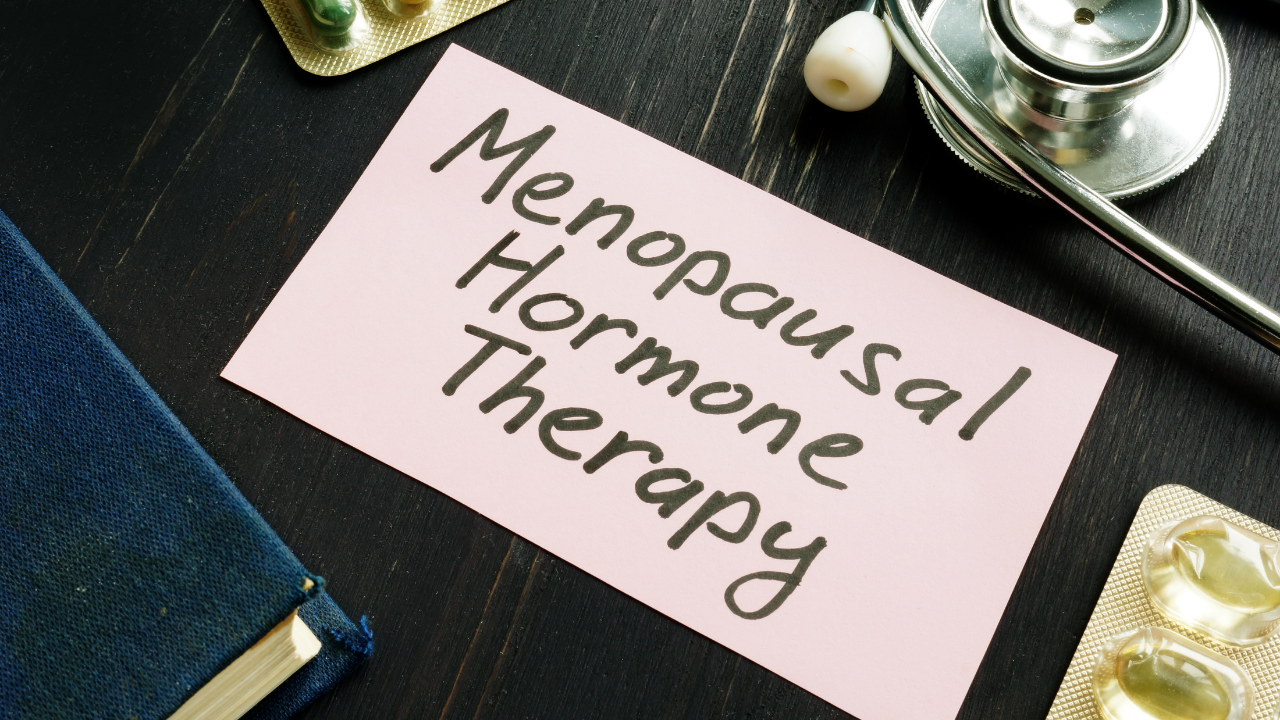Mythbusting Menopausal Hormone Therapy (MHT) (formally known as HRT)
Mar 10, 2020
When it comes to the health and wellbeing of women in midlife, MHT is the big elephant in the room. Depending on who’s talking, MHT is either the most effective treatment for menopause or a not-to-be trusted scam with ties to Big Pharma.
Premarin, the most commonly prescribed and most thoroughly researched form of MHT, seems to be particularly polarizing. Is it a fountain of youth? A one-way ticket to breast cancer?
The answer is neither. Which is not very sexy, but also not very terrifying. In short, how about we all calm down and discuss this like rational people? I’ll tell you what I’ve learned about MHT, and you be the judge--after checking with a trusted health practitioner, of course.
- If you’re convinced that MHT causes breast cancer, blame the Women’s Health Initiative (link to my own blog on WHI), a long-term study that concluded earlier than planned because of a perceived increase in breast cancer among participants. It turned out that this study had several problems. Subsequent research has found no evidence that MHT causes breast cancer.
- Estrogen is known to protect against heart disease, stroke, and osteoporosis-related fractures, all of which cause more deaths than breast cancer.
- There’s compelling evidence that MHT reduces hot flashes, mental fogginess, and the many physical changes associated with menopause. (Among other symptoms.)
- HOWEVER. There does appear to be a link between certain types of hormone replacement and certain types of breast cancer. Women with a high risk of familial and/or hormone-driven cancer, for instance, are usually counseled against MHT. This doesn’t mean MHT is out for anyone with a high genetic risk--and it also doesn’t mean you can ward off cancer by not using MHT. Confused? Talk to your doctor, and maybe a genetics counselor as well.
- HOWEVER. Timing is important. Women who start MHT before their sixtieth birthday, and within ten years of their last menstrual period, gain the most benefit. Women outside those parameters are not thought to be good candidates for MHT, for several reasons.
- Proponents of bioidentical hormones claim those products are similar to the estrogen produced during a woman’s reproductive years. More similar than Premarin, they say, which derives from mare’s urine. HOWEVER, plenty of studies concluded that there’s little difference between the two.
- Just about everyone will tell you that each woman responds to MHT in her own way. What works for your friend might drive you crazy. Any good healthcare provider will take the time to assess your needs and responses.
So, should you consider taking MHT? Clearly, this is your decision to make. But in my opinion, the most important factor is the effect of menopause symptoms on your unique quality of life. If you’re seriously worried about your personal risk of cancer, you might decide to forego MHT. If you’re debilitated by hot flashes, you might decide to give MHT a try. I suggest ranking your menopause symptoms in order of annoyance and attacking the one you like least. No one can make this decision for you, of course, and I hope no one’s trying to sell you a magic potion that will “fix” you out of this transition.
My personal take on this is that I am an advocate of MHT, if and when quality of life is severely reduced. I’m currently going through perimenopause and getting a preview of the warmth that might be my constant companion for the next decade or so. I do have a family history of cancer, on both sides, and I’m trying to be smart about checking all the preventative boxes--genetic testing, regular mammograms, and, recently, my first colonoscopy. (Fun!) But regardless of my family history, if my quality of life is impacted, I will very strongly consider MHT when the time comes.



